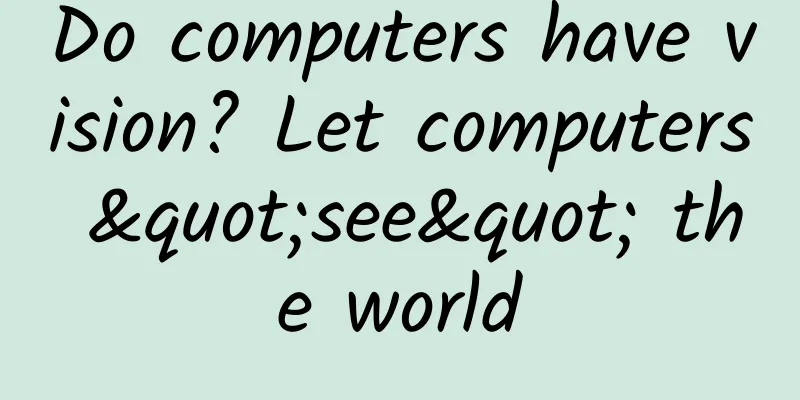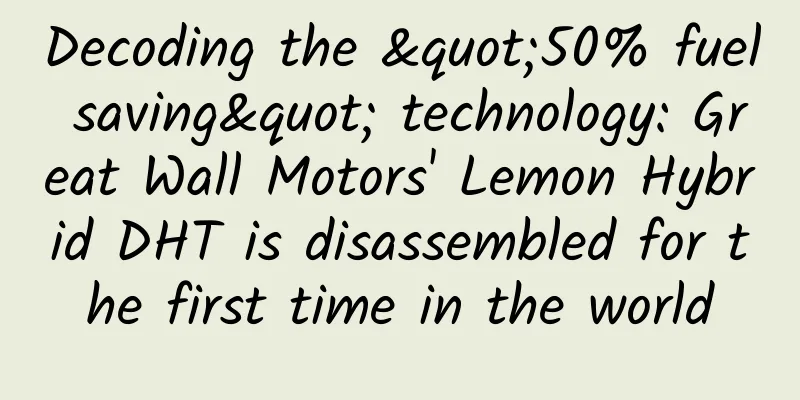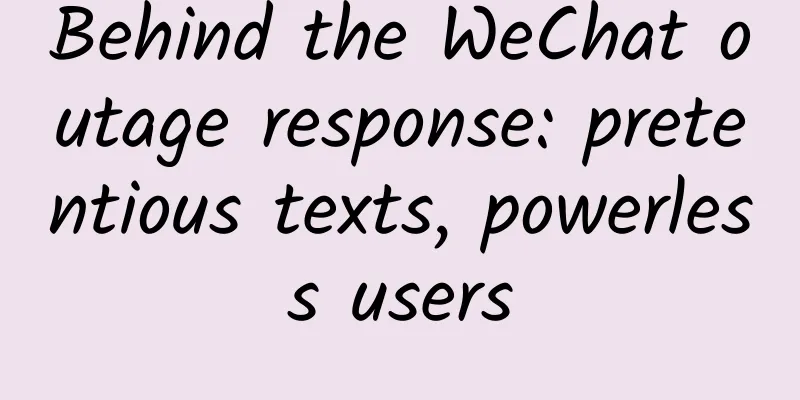The rise and fall of parallel-imported iPhone 6: Hong Kong version worth 20,000 yuan is out of stock

|
With the release of the new generation of iPhones, parallel importers in Beijing's Zhongguancun have once again ushered in the annual "hunting season." Liu Ji (pseudonym) is one of them. During the half-hour interview, he apologized frequently and picked up the phone to ask about the latest purchase prices, answer inquiries from potential buyers, and help choose models and configurations. It has been more than 20 days since Apple 's iPhone launch on September 19, but the phone will not officially enter the Chinese market until October 17. Unlike the previous generation of products, mainland China was not included in the list of first launch markets, but the tiny Hong Kong was once again selected. Liu Ji hoped to use this last bit of time to sell more Hong Kong iPhones. But the price changes so fast that he had to keep an eye on the quotes from upstream suppliers and adjust his own retail prices to ensure that he would not lose money and maintain an attractive price. This busy middle-aged man has been engaged in the mobile phone sales industry for 7 years. During the same period, Apple has completed seven evolutions, from the launch of the controversial first generation of iPhone to the launch of the much-anticipated iPhone 6 and iPhone 6 Plus. Apple and the iPhone have changed not only the global mobile phone industry, but also the lives of people like Liu Ji. As a digital product enthusiast, Liu Ji started to introduce the product to domestic sales after the first iPhone was released in 2007. "At that time, this was still a technical job. You needed to crack the SIM card before you could connect to domestic operators. It was quite cutting-edge that you could enable the iPhone to make calls and send text messages in China," he said. But today, although the iPhone is getting more powerful and more functional, he no longer feels the geeky beauty of the past. Business is just business after all. "It's oversold now, and this matter should stop here," Liu Ji sighed. However, not everyone feels as exhausted as Liu Ji. 2,000 kilometers away in Hong Kong, three Apple retail stores have become a battlefield for scalpers since the launch of the new generation of iPhones, and similar scenes are played out every year. Scalpers waited expectantly at the door of Apple retail stores, asking everyone who came out whether they were willing to increase the price of the iPhone they just bought. This was the only motivation for many buyers to queue up all night: on the first day of sale, the official price of the 128GB gold version of the iPhone 6 Plus was HK$8,088, but the resale price was as high as HK$20,000. The Wall Street Journal commented: "In Hong Kong, owning a brand new gold iPhone 6 Plus is like winning the lottery." Global Purchase The lucrative returns and extremely low barriers to entry have made reselling iPhones a popular profession. Among the first regions where iPhone 6 and iPhone 6 Plus were launched, Hong Kong, China and Japan became the first choice for all kinds of "scalpers" due to their advantages in models and geographical locations. Since September 19, hundreds of people have lined up outside the Apple retail store in Tsim Sha Tsui, Hong Kong. Some of them are loyal "Apple fans" who hope to use the latest iPhone as soon as possible, but more people plan to make a profit by reselling it. "The iPhones these people buy are called 'loose goods' and will be bought by scalpers at a higher price," Liu Ji said. "Many people in Hong Kong do this, such as college students and low-income people." During the two best days of the market, people in the queue usually accept a purchase price that is twice the price on Apple's official website. But as time goes by, the price increase by scalpers will shrink rapidly, and eventually fall to 100 or 200 Hong Kong dollars. That is to say, the earlier you buy an iPhone, the greater the profit margin. However, when the Apple retail store opened the next morning, the people who had been waiting in line all night were hit hard: Apple refused to sell iPhones to them and only gave the phones to consumers who had pre-ordered them online. This is a new policy that Apple introduced this year to reduce the pressure on stores: users must first make an appointment with a local Hong Kong mobile phone number before they can go to the retail store to pick up the goods after the sale. This makes queuing meaningless; but someone at the scene insisted that Apple employees had said that they could queue outside the store, and the manager of the retail store denied this. A similar scene happened in Osaka, Japan. According to the Beijing News, more than 100 customers who failed to buy an iPhone 6 rushed into an Apple store and had a physical fight. During the fight, someone shouted in Chinese, "I came from China to Japan and queued for 48 hours to buy an iPhone 6, but they told me it was out of stock." In addition to queuing up to buy and scalpers buying, there is another more important source of parallel-imported iPhones: Apple dealers at all levels in Hong Kong. They can buy in bulk from Apple at preferential prices, and in addition to selling them themselves, a large portion is sold to parallel importers in mainland China. These iPhones are called "big goods." Liu Ji revealed that compared with the "loose goods" of more than a dozen iPhones per order, the scale of each "large goods" order can reach hundreds of units. This gives local dealers in Hong Kong a strong pricing power, which is quickly transmitted to retail markets across the country through the entire parallel import industry chain. "The price of iPhone is constantly fluctuating, and the amount of price increase is not certain. But when placing an order, you must first pay a deposit of 30% to 50%, and the other party will give it to you according to the agreed price after it arrives. If you need the goods on short notice, the market price at that time will be applied," he said. In order to seize the opportunity, many parallel importers in mainland China would prepare enough cash after the iPhone is released and rush to Hong Kong to purchase goods from major distributors and scalpers. However, in order to reduce costs, some people resorted to smuggling, which is also the darkest link in the entire parallel import industry chain. Endless number of “workers” Domestic regulations state that mobile phones are one of the 20 taxable commodities and must be declared to the customs and taxed upon entry, with a tax rate of 10%. If this cost is added, the price advantage of the Hong Kong version of the iPhone due to exchange rate factors will disappear. Therefore, after buying iPhones in Hong Kong, parallel importers will find local "water passengers" to bring the goods back to the mainland. These people are also called "foremen", and parallel importers usually have familiar "foremen" who arrange people to bring iPhones through customs in batches. Shenzhen is the area with the highest concentration of "workers". Liu Ji believes that on the one hand, Shenzhen is close to Hong Kong, with many land ports, and a large number of people entering and leaving the country every day, making customs supervision difficult; on the other hand, the surrounding areas have sufficient rural labor and more slack time, so they are willing to travel back and forth to earn some "running errands fees". The cost of bringing iPhones through customs is not low. The fees charged by the "foreman" range from 50 to 200 yuan per iPhone. On average, the parallel importers can make a gross profit of 500 yuan for each Hong Kong iPhone sold, which means that half of the profit is taken by the "foreman". On the other hand, whether the parallel importers and the "porters" can cooperate happily is often a matter of "personality". "Sometimes the porter runs away with the goods, and you can only accept the bad luck. Call the police? You don't have the right reason," Liu Ji said. However, the biggest risk is still the high-voltage line of "smuggling". If the "smugglers" are caught by the customs, they will be required to pay taxes and have their goods detained, or they will be transferred to judicial authorities and face more serious criminal penalties. Liu Ji once tried to hire a "porter", but the huge risks behind the profits frightened him, so he gave up quickly and only bought goods from domestic distributors from then on. "If something goes wrong, the investigation often starts with the 'water passengers', and those who are caught in the same line will be punished for smuggling. From the water passengers receiving the goods, to passing through customs, delivering the goods, and selling the goods, everyone involved in this business will be arrested." But he also revealed that although the operators of iPhone smuggling will be severely punished, the lowest-level "carriers" are rarely caught. "Generally, they will not go through the legal process, unless you are carrying 50 or 60 iPhones, which is a huge amount and is really unacceptable, and will be involved in smuggling." According to public reports, within five days of the iPhone 6 and iPhone 6 Plus being launched in Hong Kong, Shenzhen Customs seized 1,800 untaxed Apple phones and imposed tax, return and fine measures. Among them, a Hong Kong man tied 33 iPhone 6 Plus worth about 270,000 yuan to his body and tried to smuggle them into the mainland. He was arrested after the incident. Is the rise and fall of parallel-imported iPhones? For Liu Ji and most domestic parallel importers, there is no legal risk. "Our goods are all obtained from domestic superior distributors, and there is no customs clearance involved, so there is no suspicion of smuggling," Liu Ji said. However, judging from the market situation this year, the Hong Kong version of the iPhone is quietly losing its magic and it is difficult to reproduce the popularity of previous generations of products. The reason for this is certainly the influence of increasingly frequent exchanges between China and foreign countries and everyone buying iPhones on behalf of others, but more importantly, the mainland market position has improved and Apple is accelerating its pace of entering China. Electronics enthusiast Wang Jing revealed in an interview with the media that on the release day of September 19, the most popular product was the 128GB version of iPhone 6. Channel dealers in Hong Kong asked for nearly HK$10,000, while domestic parallel importers offered a retail price of just over HK$10,000. There were also a small number of 128GB versions of iPhone 6 Plus, which were sold for nearly HK$20,000 on the first day. These figures quickly made headlines in major media. But the good times didn’t last long. In less than a month, the price of the new generation of iPhones had dropped by more than half from its peak. Many parallel importers made mistakes in judgment and bought iPhones at high prices, but had to sell them at cost or even at a loss. According to Wang Jing's analysis, the reason why the price of the Hong Kong version of iPhone 6 plummeted was, on the one hand, due to the strong entry of mainland capital and large-scale purchases, which led to the rapid saturation of supply and the market supply exceeding the actual demand; on the other hand, the Ministry of Industry and Information Technology announced during the National Day that the iPhone 6 had obtained network access permission, and the three major operators immediately announced that they would start selling licensed products on October 17, which greatly reduced the "first-hand" value of the Hong Kong version of iPhone and caused panic price cuts. He believes that the future price trend of the Hong Kong version of the iPhone will depend on the stock situation of the licensed products: "If the licensed products have a large stock, the price will probably continue to drop, but there is not much room left. If the stock is insufficient, the price of the Hong Kong version will increase, which has happened to the iPhone 5 and 5S. As soon as the licensed products are out of stock, the price of the parallel imports will rise accordingly." Liu Ji believes that the high-priced iPhone is more of a gimmick than a norm. "The number of people who would actually spend 10,000 or 20,000 yuan on a phone is extremely small," he said. The bigger crisis is the iPhone itself, as consumers seem to be starting to become indifferent. "Parallel imports suddenly exploded with the iPhone 4, peaked with the iPhone 5, and the 5S was OK. Not many people bought the iPhone 6, which was not as good as expected," Liu Ji said. "All those who made 'big goods' this year lost money, except for those in Hong Kong. iPhone 4 and 5 never lost money." But Apple is clearly paying more attention to the Chinese mainland market than ever before, and sees it as a new growth driver. The time it takes for new models to enter China can clearly reflect this: the iPhone 4, released on June 8, 2010, officially entered the mainland market 109 days later; the iPhone 5 took only 93 days, and the 5S and 5C directly listed the mainland as the first market. Although this year's new products encountered difficulties in network access licenses, it took only 28 days to clear the obstacles to entering China. The rapid replacement of the Chinese iPhone has made the time gap that the Hong Kong version relies on to survive narrower and the survival of parallel importers has become increasingly difficult. In Liu Ji's view, this is already a red ocean with extremely fierce competition, and capital is becoming a decisive force, and small and medium-sized merchants will face crushing. He is expanding his business to Apple's after-sales service, accessories and derivative digital products, hoping to make them a new profit point after the iPhone. "Why do you have to sell iPhones? Now everyone is selling iPhones, can you still make money? It's not easy to make money from mobile phones," he said. As a winner of Toutiao's Qingyun Plan and Baijiahao's Bai+ Plan, the 2019 Baidu Digital Author of the Year, the Baijiahao's Most Popular Author in the Technology Field, the 2019 Sogou Technology and Culture Author, and the 2021 Baijiahao Quarterly Influential Creator, he has won many awards, including the 2013 Sohu Best Industry Media Person, the 2015 China New Media Entrepreneurship Competition Beijing Third Place, the 2015 Guangmang Experience Award, the 2015 China New Media Entrepreneurship Competition Finals Third Place, and the 2018 Baidu Dynamic Annual Powerful Celebrity. |
<<: New changes in Internet subtitle groups may no longer be incompatible with copyright holders
>>: Danmu enters TV: the "fleeting love" between the Internet and TV
Recommend
App Operation丨Apple Cleaning Free List Top 200! More than 40 games were removed from the list
Clearing words, locking rankings , removing from ...
New iPhone feature: Operate all apps remotely
The practical functions of domestic mobile phones...
Fan-shaped ears, long nose, what you see is just my appearance
Today I want to share with you the story of the n...
Xiaomi Mi 5 will be released in January, why was it released ahead of schedule?
[[125354]] Editor’s Note: This time, the high-con...
Is 360's sky-high price for purchasing a domain name just the willfulness of a wealthy person or is there some other hidden story?
[[127445]] On February 4, 2015, Chinese Inter...
Mianzhu SEO training: the significance of website optimization planning
Optimizing a website means making reasonable plan...
8 common misconceptions about exercise, how many of them do you have?
These common habits related to exercise are actua...
What foods don't taste salty, but are high in salt? In fact, every kitchen has them...
Everyone now advocates a low-salt diet Very sensi...
The latest trends in augmented reality and its impact on the entertainment industry
The new trend of augmented reality is changing th...
17 classic marketing cases
Marketing Tips Fables Series 1: Two Salesmen This...
Material Types of Wenchang Tower
1. Solid Wood Wenchang Tower ( WeChat: 1867393676...
It turns out that the more cameras a phone has, the better it is. The secondary camera is mostly auxiliary, and the main camera is the focus
Nowadays, smartphones often have several cameras....
Android application source code custom controls
Functional classification: Tools Supported platfo...
A brief analysis of the AARRR model user operation strategy!
There are two purposes for writing this article: ...
Low-cost customer acquisition techniques for education and training information flow advertising!
This article shares two information flow placemen...









